Wall Street meets Hollywood, with geopolitics thrown in the mix: Reflections from this year's Milken Institute's Global Conference held in Los Angeles, April 30 to May 3
“I can’t make it to the Citadel dinner tonight. It’s just too much.”
“I started investing in real estate in the ‘80s. I made a lot of mistakes selling things too early, but I held on to enough of it, and here I am. It’s not that hard – it’s California real estate!”
“The afterparty tonight is at the Wheelhouse. It’s an influencer space started by Jimmy Kimmel and my friend Brent.”
The Milken Conference is an annual gathering of more than 3,500 financiers, corporate executives, policymakers, journalists, entertainment figures and others from around the world, held last week in Los Angeles for the first time since the onset of the covid-19 pandemic. Global Counsel attended Milken to meet with clients who were in attendance, hear from the politicians and business leaders speaking, and to take part in the programme, as Global Counsel’s Chairman and co-founder, Peter Mandelson, spoke on a panel on global trade policy.
The conference is overwhelming almost by design. Some 285 keynote speeches and panels are scattered across three days and six ballrooms of the Beverly Hilton, on topics ranging from the outlook for the global economy (with the Managing Director of the International Monetary Fund) to the evolution of comedy (featuring Snoop Dogg?). In the bustling hallways, restaurant and bars of the hotel, aspiring fund managers pitch potential investors, business cards are exchanged, while financial television outlets broadcast live and California Governor Gavin Newsom works the room. In the evenings, conference attendees fan out to receptions and private dinners across Beverly Hills, or retreat to corporate-reserved suites at the Hilton or the Waldorf-Astoria next door.
Yet out of the literal and figurative noise, a few themes emerged on the panels and at the cocktail parties of this year’s Milken Conference:
- Economic caution abounds: Optimism is rarely in short supply at a finance conference. Nearly all the fund managers, brokers and corporate executives in attendance have big incentives for economies to grow and stock prices to rise (and the few who are short the market usually keep that fact to themselves), and the groupthink at such events usually turns every negative into a buying opportunity. But nervousness about the global economy was palpable at Milken. Attendees spoke of the effects of the interest-rate increases across much of the Western world in their portfolios and operations, and tallied up signs of slowing economic growth in the US, UK, EU and China. Many investors and corporate owners of commercial real estate discussed the “new normal” of workers across much of the US coming into the office much less than pre-pandemic, and wondered about the effects of this trend for downtown office and retail prices. “This cycle is more of a grind, grind, grinding down,” Victor Khosla, CIO of investment firm Strategic Value Partners, told one Milken audience. “Interest rates have gone up, and we believe they're going to stay up.” It certainly did not help the mood that First Republic, a troubled California-based lender with a branch a few blocks from the Hilton, was acquired by JPMorgan Chase in a distressed sale on the conference’s first full day, while Beverly Hills-based PacWest saw its share price cut in half the day after as investors wondered which bank might be next.
- The US’ anti-China stance is hardening… While US-China relations have been deteriorating for years, the degree of American enmity toward China at the conference was still surprising. We heard arguments from both Democrats and Republicans that more must be done to rein in China’s perceived aggressions against the US and the world. One US lawmaker told us that if given the opportunity he would vote to ban TikTok in the wake of the recent Congressional hearing featuring the Company’s CEO. On a panel discussing global trade, Global Counsel’s Chairman and co-founder, Peter Mandelson, argued it out with US Rep. Darrell Issa (R-CA), Republican of California, who was unrelenting in his view that the US is losing an economic battle with China and needs to do more to fight back – now more of a consensus view in the US than an outlier.
- … but the rest of the world is not following along in lockstep. Despite the strong views of their hosts, a number of non-US conference attendees we spoke with pushed back against the American narrative that China is a threat to global security, arguing that the world revolves around the US less than it used to, and that China’s role on the world stage is more nuanced. One Asia-focused investor complained to us that recent US pressure on South Korean semiconductor companies to reduce their dependence on Chinese components is at best impractical, and at worst illegal. A Gulf-based investor described to us the important role China plays as a power broker in that region, noting China’s role as mediator in a recent agreement between Iran and Saudi Arabia to re-establish diplomatic ties for the first time in seven years. As we have learned in prior conversations with contacts in Washington, DC, China is willing to step into power vacuums the US leaves almost anywhere in the world.
- Inflation Reduction Act: Grab it while you can. Implementation of the US Inflation Reduction Act (IRA), as well as the CHIPS Act, both passed into law in the US last year, are in full swing. Based on our conversations with European attendees at Milken, the animosity toward the IRA we perceived earlier this year has now been replaced by resignation, or a “don’t get mad, get even” impulse to respond, which Europe has now done with the Net-Zero Industry Act. Investors and corporates we met with are actively encouraging their portfolio companies to petition for funds allocated under IRA and CHIPS. We are not sure where this new Western industrial subsidy arms race ends up – the Americans would never admit it (as evidenced by point Number 1 above), but they are in a way acting more Chinese in attempting to manage large portions of the industrial economy. But companies and investors should be active, and soon, in seeking these funds for programs relevant for its American businesses - efficient distribution of the money allocated under these stimulus bills is clearly key to Biden’s 2024 re-election strategy.



